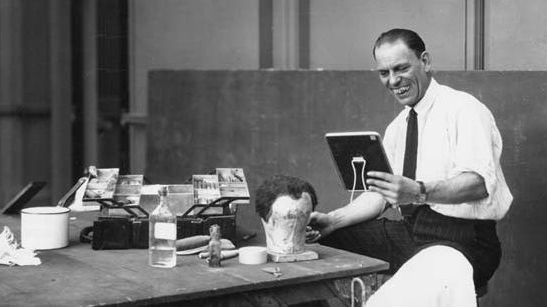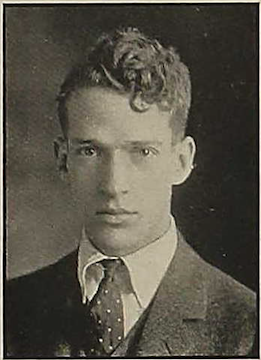Must set the DVD recorder for Secret Voices of Hollywood, a repeat transmission of a fine documentary, covering the artists who 'ghosted' for star performers in major films. Marni Nixon who died some weeks ago is seen covering for Audrey Hepburn, Deborah Kerr and Natalie Wood and also has a rare appearance in The Sound of Music. A fine and overdue tribute. Shown at 22.00-23.30hrs, tonight, BBC4, 21st August. Compelling stuff.
Secret Voices of Hollywood, BBC 4, tonight, 21 Aug
Collapse
X
-
Having difficulty with lost copy, today, - 3 attempts - but will have a final go! As we used to say in the 50s after every setback, 'Must be those atom bomb tests!'
Although I have a copy of Secret Voices of Hollywood, I wanted to record last night's transmission as HD is now a normal provision with the profuse availability increase in recent weeks. I tested a screening of Show Boat, 1951, a few weeks ago and was astonished at the almost 3D effect in the picture, along with the clarity in the sound factor. I even tested the black and white print of Pride & Prejudice, (1940); highly effective and delivered an unexpected surprise when the credits listed Aldous Huxley as the adapter.
MGM ruled supremely for several decades and Arthur Freed ran the output of musicals with the mantra - 'make 'em big; give 'em class. I now have the 1936 and 1951 versions of Show Boat on one DVD and the technicolour print of the later production is always a treat to see. Lena Horne was one of their star players - a great stylish performer - and I still recall her bitter pronouncements during her West End performance of her one-woman show, early 80s. Her work was usually filmed in single sequences so that they could easily be cut from prints due for distribution in the southern states and, even though she was a natural for the role of Julie Laverne in Show Boat, she was rejected in favour of Ava Gardner. To be fair, Gardner was sumptuous in the role but also had to be dubbed as she didn't have the voice for Can't help lovin' that man of mine and, particularly, Bill. A mad world my masters.
I'm glad that That's Entertainment, 1974, with clips from MGM musicals from the 20s/60s, will be shown on BBC 2, Sat, 27 Aug, 13.25-15.30hrs, preceded by a 40 mins documentary, Talking Pics - the career of Bing Crosby. I shall certainly opt for the HD recording covering several decades.
Comment
-
-
I really enjoyed those comments, Stanley.
A couple of years ago I presented a lecture on The Freed Unit at MGM and, in particular, the great arranger and orchestrator Conrad Salinger who was largely responsible for that 'sound' in numbers such as "The Trolley Song", "Have Yourself a Merry Little Christmas" (notice the Bachian style chord progressions in the bass!) and many, many others. You'll find him in the credits of "Showboat"!! I've also got some excellent books on the subject and one in particular might interest you - but I'm away from home and won't be back for another week. When I return I'll give the details. Meantime, here he is! The man studied at the Paris Conservatoire and knew the leading composers of the day: indeed some of the incidental music Salinger composed for "Meet Me in St. Louis" could have been written by Paul Dukas!
I know it's a completely redundant comment, but if I had my life over I'd write a book about this much-neglected artist.
Comment
-
-
Thanks, Tetrachord. Indeed, Conrad Salinger in a prime position within the Freed unit at MGM; a Salinger biography a consummation devoutly to be wished!
How well I recall the John Player talks at the NFT in the 60s and 70s with star actors, directors and producers at the fore with Bette Davis or Wm Wyler holding forth without equivocation. At the time, the BBC used to show an edited version but without the controversial titbits.
Also a pleasure to collect the Turner Classic Soundtracks of the golden age musicals released on CD in the 80s and later and, of course, multi-recording used at MGM meant that later stereo tracks were readily available. Splendid liner notes and out-takes included in the set.
Comment
-
-
Comments very much appreciated, Stanley. You are obviously a man of discernment and taste!! Please, what is NFT? I feel I show know.
About 3 years ago I contacted an American jazz musician on the internet about Conrad Salinger; I forget his name now, but he replied "yours is one of the emails one longs to get - somebody with an active interest in Conrad Salinger". He went on to tell me that he once met Robert Russell Bennett who worked with Salinger on Broadway and, of course, that explains Salinger's emulations of some of RRB's orchestrations and musical mannerism for "South Pacific" and "Oklahoma". etc. I suddenly realized why they sounded so similar, particularly with the use of brass. And this musician (I wish I could remember his name - it will come to me, but take time as I deleted the email account I was using at the time of our correspondence) said that when he mentioned Salinger's name to RRB a huge smile came to his face immediately. Also, it was mentioned that a lot of the scores and artefacts from the Freed Unit had been destroyed, the remnants donated to, I think, the University of Southern California. So, I was informed that most of the vocal scores remain but the orchestrations no longer exist. Such a pity!!!
There's a documentary which accompanies "Singing in the Rain" DVD all about the Freed Unit, and Salinger is discussed by Andre Previn. He said, "Salinger could take a little tune like 'Twinkle, Twinkle Little Star' and make it sound like "Daphnis and Chloe'". High praise indeed.
Here is one of my favourite orchestrations from the great man - a last minute addition to the picture!! The ending, where the violins emulate the sound of the trolley car disappearing into the distance....poetry!! And the fussy brass sections. Ahhh... And the rich polyphonic undertones. Mmmm. There's real artistry there. (One of the criticisms of "Connie" was that he "over-orchestrated". I disagree.)
Last edited by Tetrachord; 26-08-16, 05:36.
Comment
-
-
Thank you, Tetrachord. I'm probably more of an eccentric nutter about movies!
I'm probably more of an eccentric nutter about movies!
NFT - National Film Theatre on London's South Bank complex now much enlarged from the 1950's structure of NFT 1 & 2. NFT2 used to be a tiny cinema with a couple of hundred seats mainly featuring the golden oldies. Overall annual membership used to be 7/6d (approx 37 p today) with a monthly illustrated catalogue by post. I still have a couple of off-air videos with shots of my younger self in the much larger NFT1, during the John Player lectures; in one instance David Niven was the guest speaker and, seated a few rows behind me, was Charlton Heston.
Singin' in the Rain (1952) would always pack 'em in and continues to enjoy regular repeats on BBC 2 and I frequently dip into Andre Previn's memoir, No Minor Chords, (1992) covering his days in Hollywood. A joyous moment in the Arthur Freed documentary which recalls the comment made in the MGM commissary when star performers of the Freed unit would pass for lunch - "There goes royalty" Got it in one!
I'm about to set the HD recorder for yet another showing of That's Entertainment, Pt 1, 1974, tomorrow, on BBC 2, The remastering quality on HD almost three dimensional. Pt 2, usually follows a week later and make splendid partners on transfer to DVD. Even in black and white there is little to equal the charm of James Stewart serenading Eleanor Powell, in a backlot set of Central Park, in Born to Dance, 1936.
Comment
-
-
Tell you what! I'm really enjoying the silents these days, and the early talkies. "Pandora's Box" (GB Pabst), "Ben Hur" (Fred Niblo), "Metropolis" (Fritz Lang), "The General" (Buster Keaton), and really anything with the astonishing Lon Chaney. There's a beautiful documentary about Chaney narrated by Kenneth Branagh which I highly recommend; it brought tears to my eyes on every viewing. This is it but I don't think it's available on the internet:
 For Lon Chaney, the art of acting was the art of continual transformation, and it came from a desire to become someone else.
For Lon Chaney, the art of acting was the art of continual transformation, and it came from a desire to become someone else.
I've found it!! Here it is:
Last edited by Tetrachord; 26-08-16, 22:40.
Comment
-



Comment